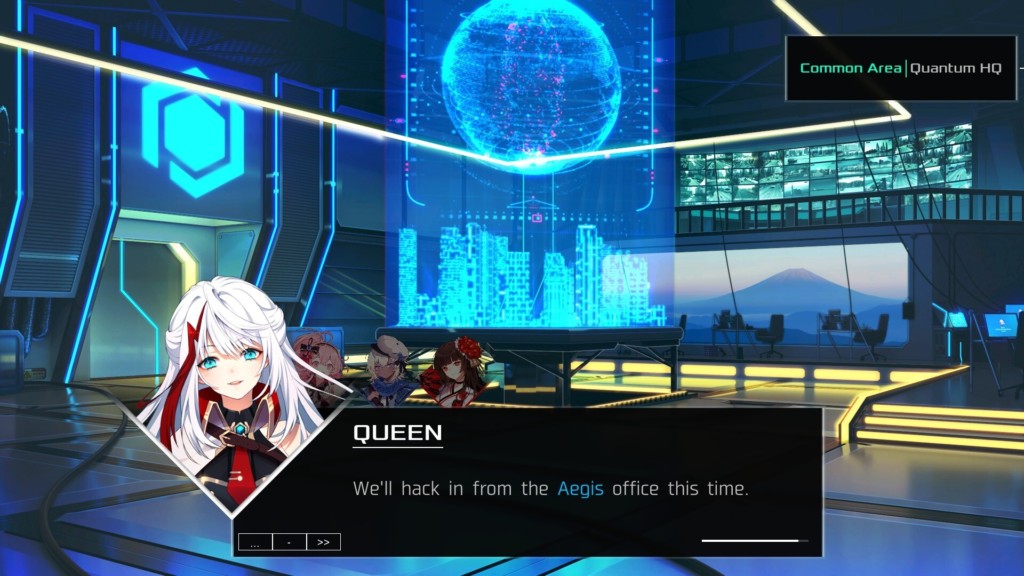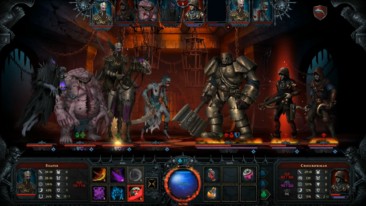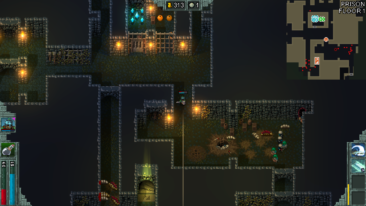Monthly Column – November 2020 Top Three Curiosities
The future…will be turn-based. Or at least the futures depicted in my top three hidden Steam gems from last month. Read on…
Quantum Protocol
by Kaio Meris
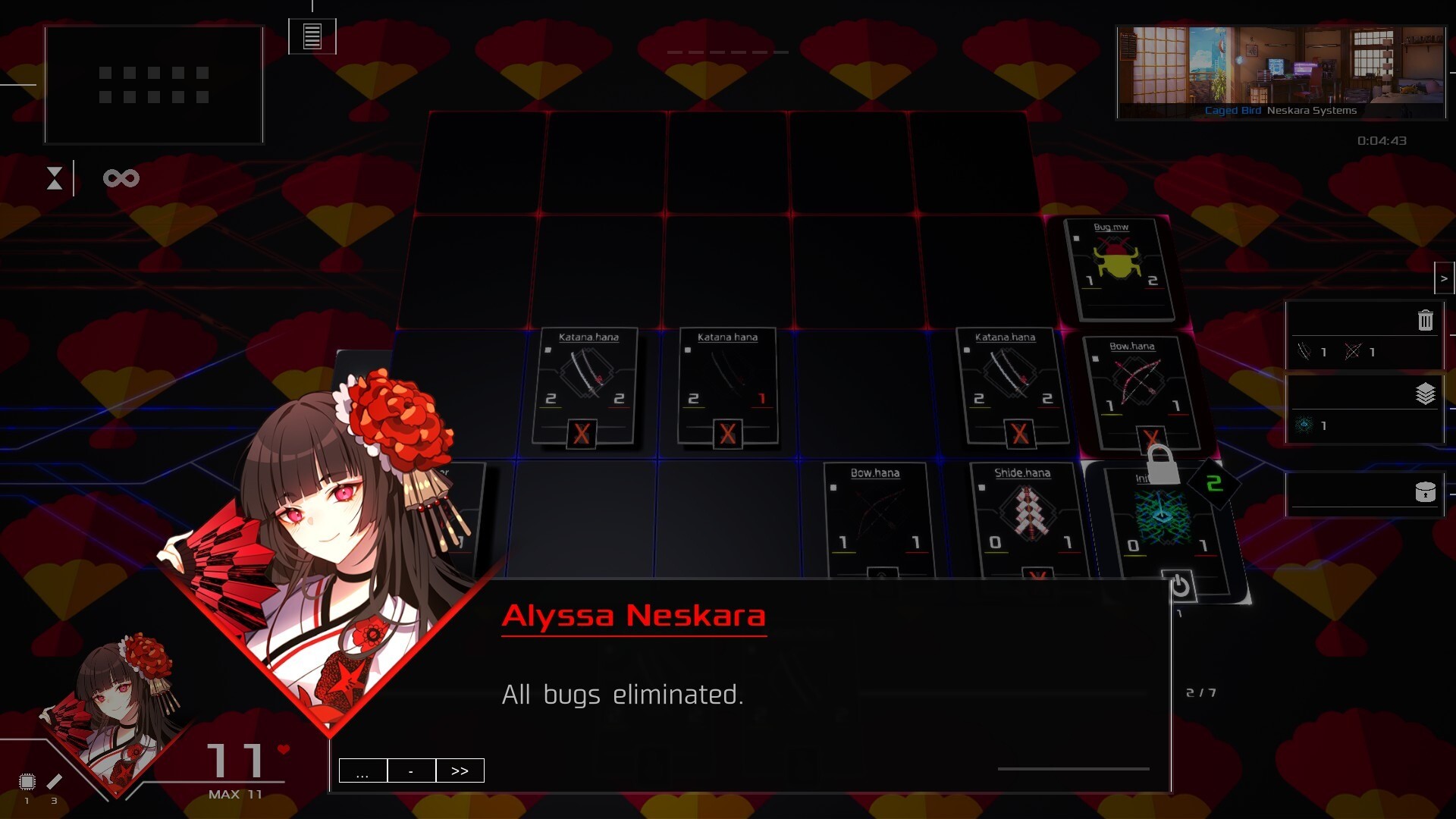
Jaron Kong, otherwise known as Kaio Meris, is an upcoming developer with a sharp, futuristic anime sensibility and a knack for combining unexpected but synergistic game mechanics. In fact, I featured his game Zero Strain, which combines frantic twin-stick shooting with a control scheme inspired by League of Legends, in my June 2019 column.
His latest is a similar blend, but moves at a far statelier pace, combining card battles with visual novel elements to deliver a thoughtful cyberpunk hacking game. Inspired heavily by Kong’s experience as a competitive Yu-Gi-Oh! player, Quantum Protocol attempts to provide a similar strategic deck-battling experience.
I can’t comment directly to that, as my own tabletop card battle experience is limited to a single night of Magic: The Gathering in the late ‘90s. What I can say is that Quantum Protocol delivers an impressively complex but easy-to-learn experience enhanced by beautiful graphical and sound effects.
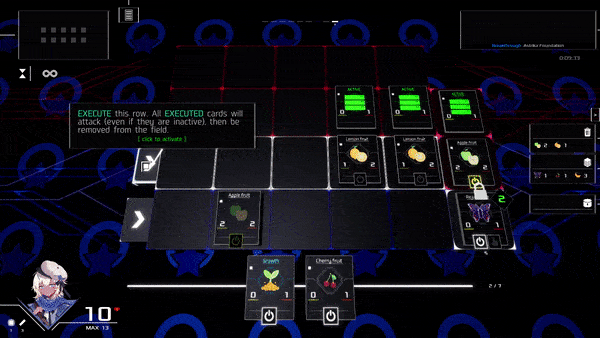
The game presents a variety of cards and multiple methods of using them in a way that’s approachable, and the complexity is such that I often replayed rounds just to make sure I fully understood what I was doing, but never so aggressively difficult that I ended up hyperventilating and quitting the game in a panic (which I’ll admit to doing with Kong’s previous game).
The presentation is impressively professional, too, from the detailed, soft-hued backgrounds in the visual novel portions to the electronic blips and crunches and neon bursts during the card battles, perfectly evoking that classic cyberpunk hacking vibe that hearkens back to Neuromancer.
For some reason, I’ve played a lot more deck-building games than usual this year. This one, I think, is my favorite of the bunch.
Sublunar
by Materik AB
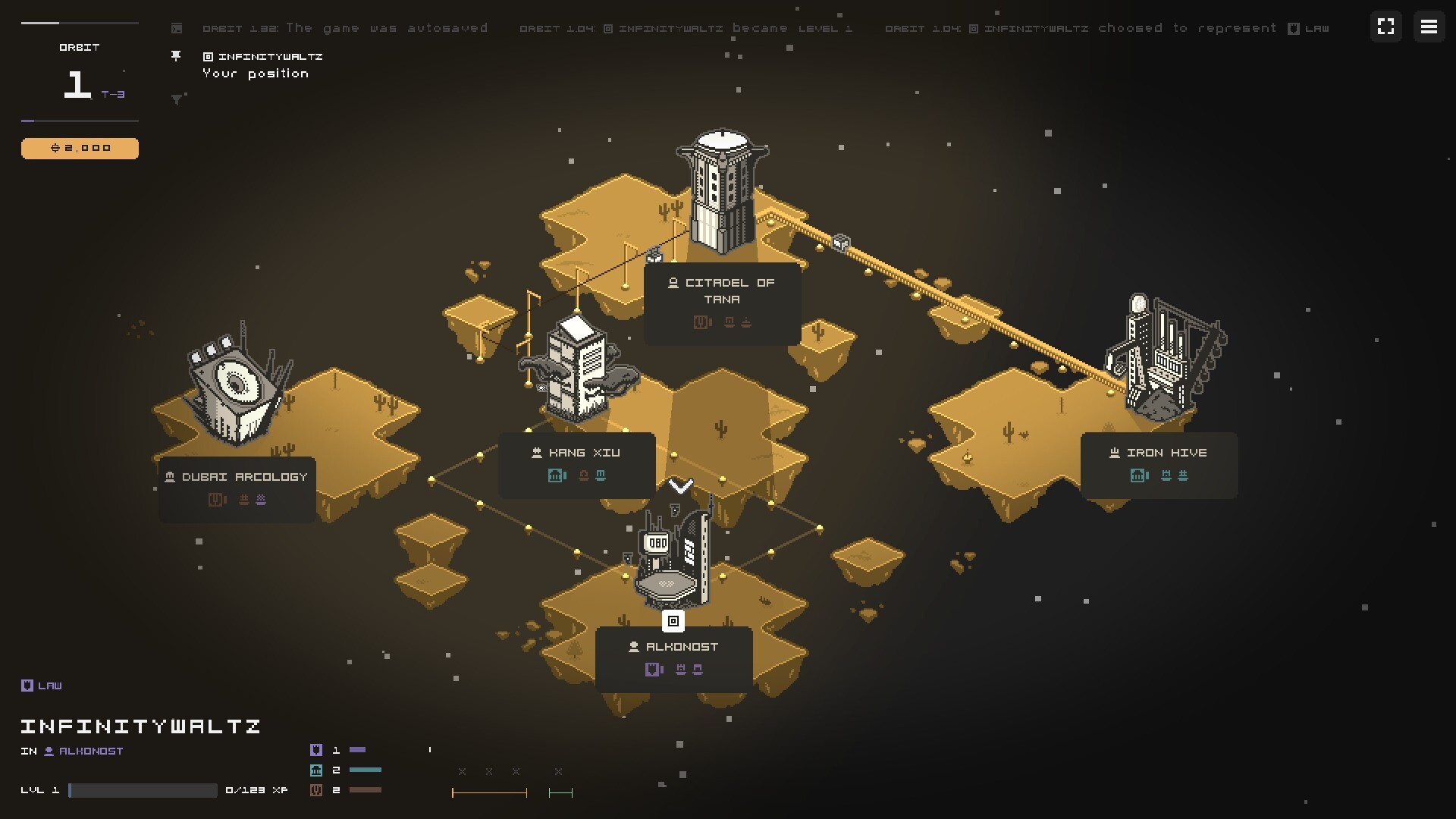
Sublunar, on the other hand, succeeds despite its initial presentation rather than because of it. A fairly complicated strategy and management game set in an interplanetary future beset by factional warfare, the game puts you in a spymaster position, recruiting assets and assigning them to carry out missions in order to convert more and more settlements to your own faction.
It’s loaded with the kind of complex statistical management that I hate in tabletop games but paradoxically enjoy in video games – thanks to software keeping track of all the numbers instead of sticking me with the job – and would benefit tremendously from the ability to mouse-hover over the numerous icons and indicators to reveal what they actually mean.
Complaints about the interface aside, a stylized and simplified isometric approach – it reminds me a little of a more subdued and less abstract version of Rymdkapsel – and a primarily text-driven method of providing information makes this a surprisingly intriguing take on slow-burn strategy.
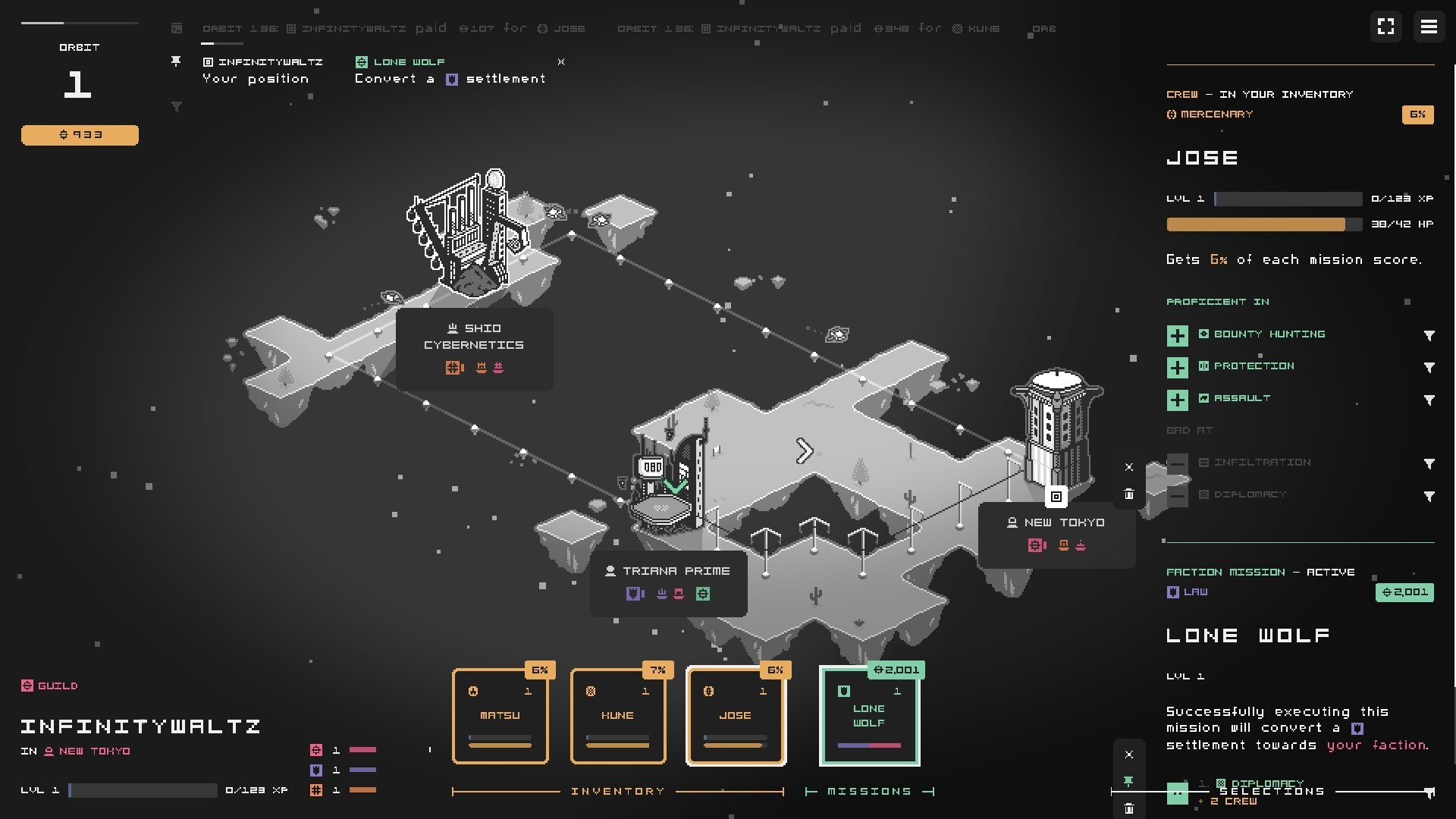
Developers Materik AB provide just enough flavor-text to give the imagination room to conjure tales of infiltration, corporate espionage and assassination from what is essentially a game about balancing statistics.
Getting to grips with it at first is a bit of a headache, but once you wrap your head around the basics, it definitely has that addictive “just one more turn” quality.
BasCatball Mars
by Opala Project
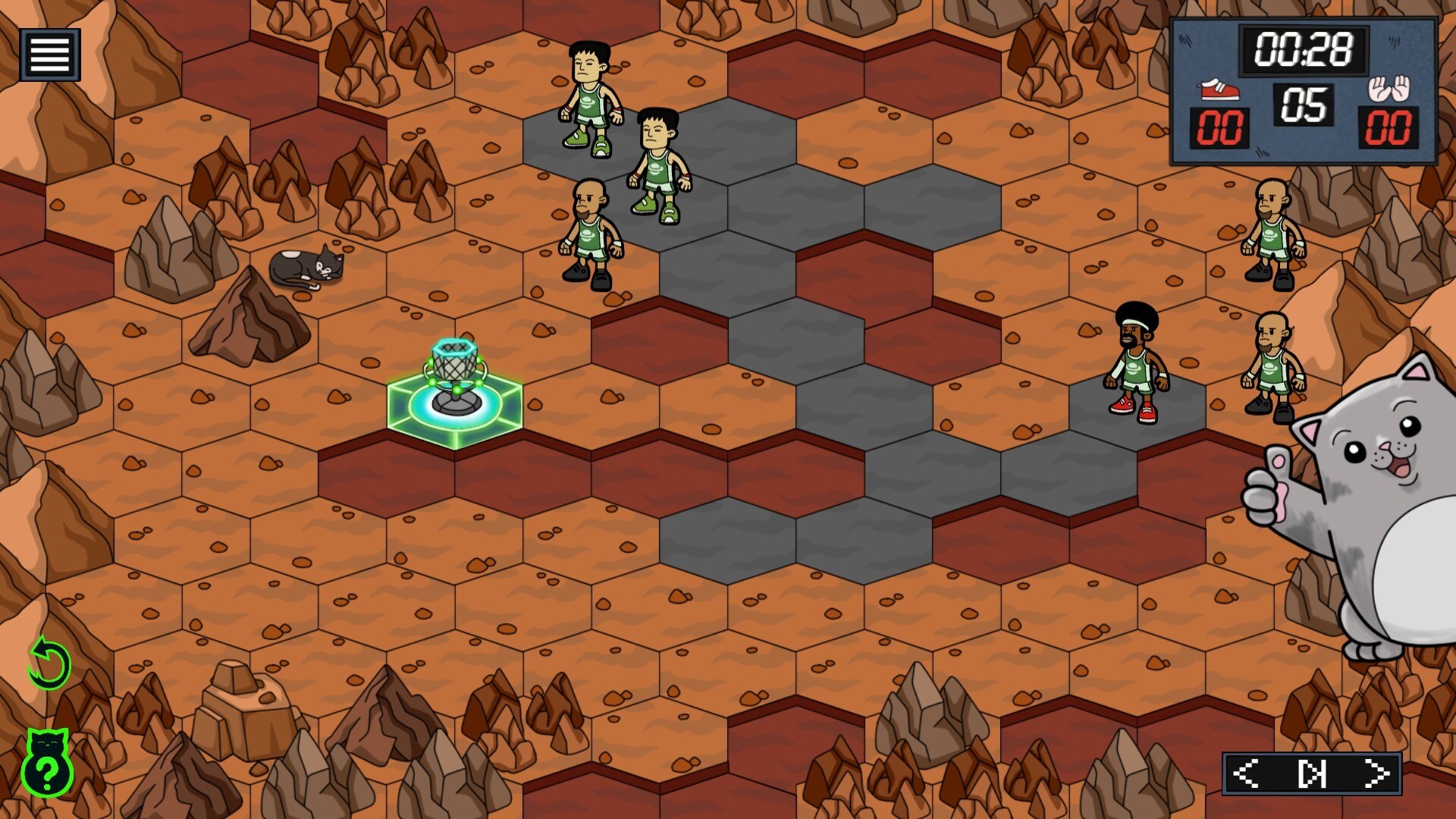
Credit where credit’s due: BasCatBall Mars crams all of its core themes into its title. This is a game about basketball…with cats…on Mars. Not since Shark Castle crammed ocean predators, robots and Medieval architecture into a single game has such a seemingly disparate conceptual blend worked out so well.
Don’t worry if you’re not into sports games in general or basketball in particular, either. What Opala Project has given us is a series of extremely clever spatial puzzles disguised as Martian basketball (with cats).
Each level features a set of players, each with a certain set of required moves; some need to move a required number of spaces and then pass or shoot, others can only do one or the other, and the game scoreboard also posts a required number of moves and throws, so no shortcuts allowed.
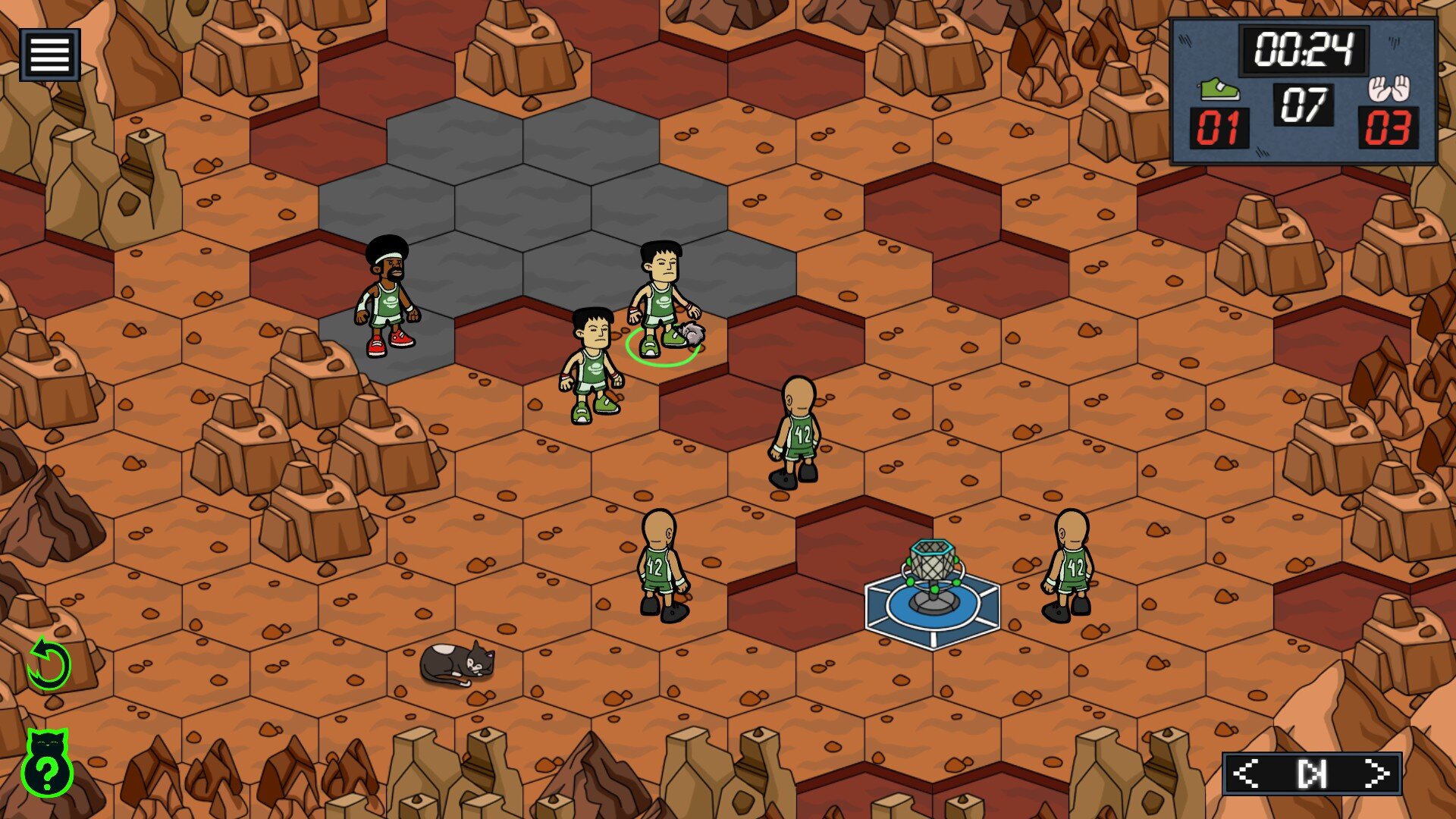
On top of that, players can’t reuse spaces used by either themselves or other players, and you’ve got craters (and cats) to avoid, so as complexity ramps up, it increasingly feels less like a sports simulation – no matter how bizarre or how many cats – and more like a series of line or chess puzzles.
The “cats and basketball players on Mars” bit is lighthearted and playful, but the puzzles are not (and the lack of an option to undo your most recent move doesn’t help). I definitely had to walk away from several of the puzzles, even very early in the game.
To its testament as a well-designed puzzle game, though, I always came back.
What do you think about this month’s undiscovered gems? Did you find any of your own in November? Let us know in the comments!

